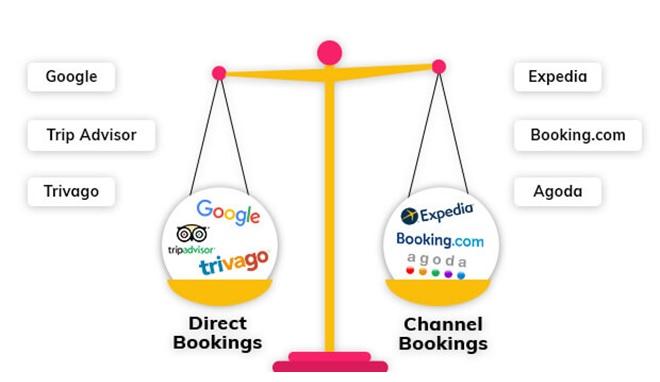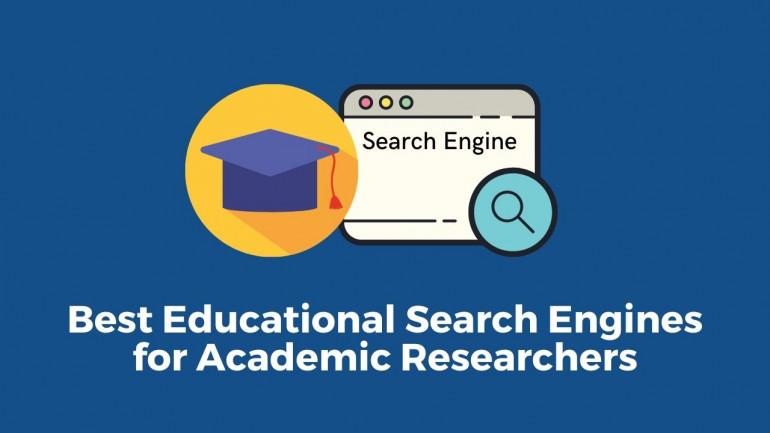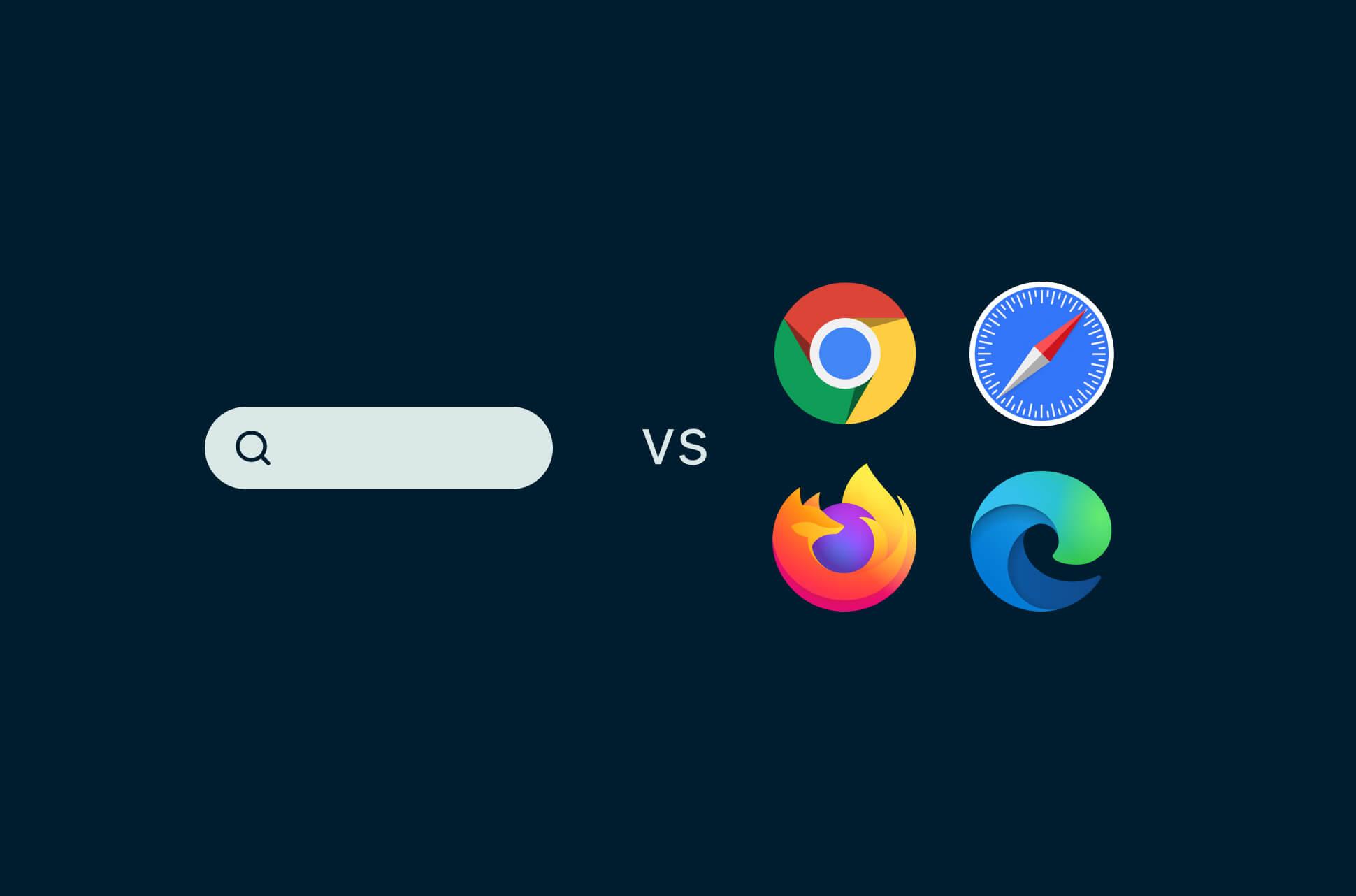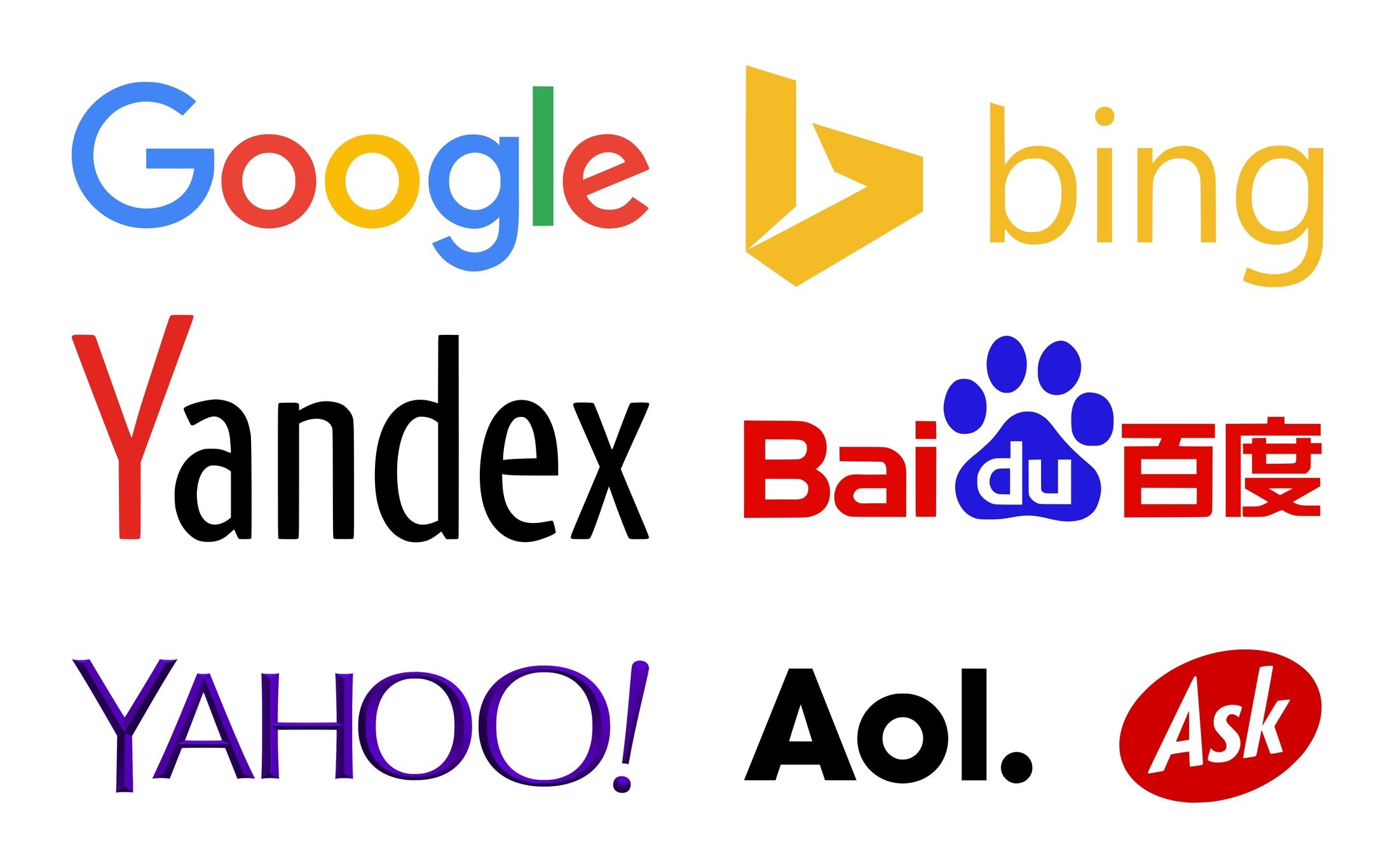In a world where Google dominates online searches, you might think it’s the only player in the game. But hold on a second! What if we told you that there are plenty of other search engines out there that might just suit your needs even better? Whether you’re concerned about privacy, seeking more relevant results, or simply looking for a fresh take on search, alternatives abound and are waiting to be explored. In this article, we’ll dive into the 11 best search engines to use instead of Google. from the privacy-focused to the incredibly niche, these alternatives can enhance your online experience and even help you discover something new. So, let’s embark on this journey together and find the perfect search engine for you!
Exploring Alternatives to Google for your Search Needs
When it comes to searching the web,many of us default to Google without considering the multitude of alternatives available. While Google provides robust search capabilities, exploring other search engines can lead to a different experience and even better results tailored to your preferences. Hear are some noteworthy alternatives that could enhance your online searching.
One of the standout options is DuckDuckGo. This search engine emphasizes user privacy, ensuring that your searches remain anonymous and untracked. DuckDuckGo is especially appealing for those who are concerned about data collection and tracking practices prevalent in the digital age. the interface is clean and user-friendly, making it easy to find what you need without compromising your privacy.
Another excellent alternative is bing, which is known for its visually appealing homepage and thorough search results. With features like image and video searches, Bing provides a rich multimedia experience. Additionally,it offers rewards for users who search frequently,which can be a fun incentive to try it out.
if you’re looking for a more niche search experience, Startpage might be your best bet. Startpage combines Google’s search results with enhanced privacy protections. It allows you to search anonymously while retrieving the same quality results that Google offers. This makes it an ideal choice for those who still want access to Google’s powerful algorithms without the privacy concerns.
For users interested in a more community-driven experience, Qwant is a fantastic choice. Based in Europe, Qwant prioritizes user privacy and does not track searches or use personal data. It has a unique layout that categorizes results into web, social, images, and news, helping users find exactly what they’re looking for quickly. Furthermore, qwant’s commitment to neutrality makes it a refreshing alternative in a polarized digital landscape.
| Search Engine | Key Feature | Privacy Focus |
|---|---|---|
| DuckDuckGo | Anonymous search | high |
| Bing | Visual search experience | Medium |
| Startpage | Google results with privacy | High |
| Qwant | Community-driven results | High |
Lastly, if you’re in the academic or research field, Wolfram Alpha can be invaluable.It’s more of a computational knowledge engine than a customary search engine, offering precise answers to factual queries and complex calculations. Whether you’re a student or a professional,Wolfram Alpha can serve as a powerful tool in your research arsenal.
In a world where data privacy and facts diversity are increasingly vital, exploring alternatives to Google can considerably enhance your online experience. Each of these search engines brings something unique to the table, allowing you to find results while aligning with your values and preferences.
Why You Should Consider Using Different Search Engines
In a world dominated by Google, it’s easy to overlook the fact that other search engines can offer unique features and benefits tailored to your specific needs. Each search engine has its own algorithms, user interface, and privacy policies, which can significantly affect your search experience. By exploring alternatives, you might discover a tool that suits your preferences or helps you find information more efficiently.
Privacy Matters
Many users are increasingly concerned about their online privacy. Some search engines prioritize user anonymity, ensuring that your search history isn’t tracked or sold. Consider using alternatives that offer private browsing experiences, such as:
- DuckDuckGo – Does not track your searches.
- StartPage – Uses Google’s results while protecting your privacy.
- Qwant – A European search engine with a strong emphasis on privacy.
Discovering Niche content
Different search engines can surface niche content that may not appear on Google’s radar. If you’re looking for specific information, using specialized engines can help you find what you need faster. Consider engines tailored for:
- Academic Research – try Google Scholar or BASE for scholarly articles.
- Travel and Hospitality – use Skyscanner for travel deals and reviews.
- Shopping – Check out Shopzilla for price comparisons.
Enhanced User Experience
Some alternatives offer a more streamlined and user-friendly experience. interfaces that are clean and easy to navigate can save you time and frustration. Explore engines that provide:
- Visual Search – Pinterest allows users to search using images.
- Voice Search – Bing has robust voice search capabilities.
- Customizable Features – StartPage and others let you tailor your experience.
Community-driven Results
Some search engines rely on user-generated content and community involvement, providing results that are shaped by real people. For example,Reddit can be a fantastic source for the latest trends,advice,and personal experiences,allowing you to tap directly into the knowledge of a vast community.
Table of Top Search Engine Alternatives
| Search Engine | Main Feature | Best For |
|---|---|---|
| DuckDuckGo | No tracking | Privacy-focused users |
| Bing | Visual search options | Multimedia searches |
| Qwant | Privacy and neutrality | European users |
| Yahoo! | News and finance | Current events |
By broadening your search engine repertoire, you can uncover a wealth of information tailored to your unique needs. Whether you value privacy, niche content, or a user-friendly interface, there’s an alternative out there waiting to enhance your online experience.
the Top Features of Privacy-Focused Search Engines
In a digital landscape dominated by data collection and targeted advertising, privacy-focused search engines are becoming increasingly significant. These platforms prioritize user confidentiality and provide a refreshing alternative to mainstream search engines. Here are some of the standout features you can expect from privacy-centric search engines:
- No Tracking: Unlike traditional search engines, privacy-focused alternatives do not track your search history or personal data.This means your queries remain anonymous, allowing you to browse without being monitored.
- Enhanced Encryption: Many of these search engines use HTTPS to ensure that your connection is secure. This encryption protects your data from potential eavesdroppers, making your online experience safer.
- Ad-Free Experience: While some privacy-focused search engines may display ads, they are frequently enough less intrusive and not based on your personal data. this results in a cleaner, more streamlined browsing experience.
- Customizable Privacy Settings: Users often have the option to adjust their privacy settings according to their preferences. This could include disabling certain features, opting out of data collection, or even choosing how their search results are displayed.
Another key aspect is the diversity of sources these search engines utilize. Rather than relying solely on a single index, privacy-focused search engines aggregate results from various sources, providing you with a broader perspective. This ensures that you receive a variety of viewpoints and resources, enriching your search experience.
Additionally,many of these search engines promote open-source clarity. This means their algorithms and practices are available for public scrutiny. Users can trust that their data is not being misused, fostering a sense of community and accountability.
privacy-focused search engines often feature user-friendly interfaces that make navigating them a breeze. With intuitive designs and straightforward search functionalities, you can find what you need without unnecessary complexity. This ease of use,combined with robust privacy features,makes these platforms a compelling choice for anyone concerned about their online footprint.

Finding Niche Search Engines for Your Unique Interests
When you step away from the familiar landscape of Google, you’ll discover a treasure trove of niche search engines that cater to specific interests and needs. These platforms not only allow you to dive deeper into your passions but also enhance your online experience by connecting you with like-minded individuals and niche communities. Here are some noteworthy alternatives to consider:
- DuckDuckGo: Prioritizing privacy, this search engine doesn’t track your searches.Perfect for those who value confidentiality while exploring interests.
- Wolfram Alpha: This computational search engine excels in providing factual information and complex queries, making it ideal for students, researchers, and science enthusiasts.
- Archive.org: If you’re a history buff or love vintage content,this digital library offers access to a vast collection of books,movies,and music.
- Dogpile: A metasearch engine that aggregates results from various search engines, giving you a broader perspective on your query.
- GoodSearch: this engine donates a portion of its revenue to charities based on user searches, allowing you to give back while searching for what you love.
Exploring these alternative search engines not only diversifies your search results but also makes your online activities more fulfilling. For instance, if you’re passionate about cooking, Yummly provides tailored recipe searches based on your taste preferences. Similarly, if you’re into science fiction, Sci-Fi Search can connect you to books, movies, and fan discussions without the noise of mainstream results.
Another remarkable example is RefSeek, which is designed specifically for students and researchers. It filters out the clutter and focuses on academic resources, making it easier to find credible information for projects and papers.You might even be surprised by how much more focused and relevant your search results become when using these specialized engines.
To make your search experience even more enjoyable, consider customizing your chosen search engine’s settings to align with your preferences. Many niche platforms offer filters that can definitely help narrow down results based on categories, publication dates, or content types. Integrating these filters into your search routine will save you time and lead to more satisfying discoveries.
Lastly, it’s worth exploring community-driven search engines like Search Engine Colossus, which focuses on niche and specialized search engines from around the world. This platform allows you to find engines specific to your interests,whether they be hobbies,regions,or professional fields. By taking the time to explore these alternatives, you’ll not only enrich your knowledge but also connect with vibrant communities that share your passions.

how to choose the right Search Engine for You
Choosing the right search engine can significantly enhance your online experience. With numerous options available,it’s critically important to consider what matters most to you. Here are some factors to keep in mind:
- Privacy: If you value your personal data, look for search engines that prioritize user privacy and do not track your searches.
- Results Quality: Consider how relevant and accurate the search results are. Some engines specialize in niche searches.
- User Interface: A clean, easy-to-navigate interface can make your search experience more enjoyable.
- Features: Some search engines offer unique features such as image searches, local results, or integration with other tools.
- Speed: The loading time of search results can vary between engines. A faster engine can save you valuable time.
Another important aspect is the search algorithm. Some search engines leverage advanced algorithms to deliver personalized results based on your preferences, while others focus on impartiality and neutrality.If you’re an avid researcher, you might want to explore specialized search engines designed for academic or scientific inquiries. These can provide more relevant results compared to generalist engines.
In terms of community and support, consider whether the search engine has an active user community or support forum.This can be particularly helpful if you run into issues or have questions about maximizing your search capabilities.
| Search Engine | Best For | Key Features |
|---|---|---|
| DuckDuckGo | Privacy Seekers | No tracking, anonymous browsing |
| Bing | Visual Search | Image & video previews, rewards program |
| StartPage | Enhanced Privacy | Google results without tracking |
| Qwant | Neutral Searches | No cookies, privacy-focused |
Ultimately, the best search engine for you depends on your unique needs and values. By taking the time to evaluate options based on privacy, features, and results quality, you can discover a search engine that complements your lifestyle and enhances your online searches.Remember, you’re in control of your search experience, so choose wisely!

The Benefits of Using Meta Search Engines
If you’ve ever found yourself frustrated with the limitations of traditional search engines, meta search engines might just be the breath of fresh air you need. These unique platforms aggregate results from multiple search engines, allowing you to cast a wider net when looking for information. Here’s why they can be incredibly beneficial:
- Comprehensive Results: by pulling data from several search engines at once, meta search engines provide a broader spectrum of results. This means you’re less likely to miss out on valuable information that might only appear on a specific search engine.
- Time Efficiency: Instead of opening multiple tabs or juggling different search engines, you can get a comprehensive view of your query in one place. This saves you time and makes your search experience more efficient.
- Reduced Bias: Different search engines have different algorithms and biases. Using a meta search engine helps mitigate this issue by presenting a variety of perspectives and sources, leading to more balanced information.
- Privacy Protection: Many meta search engines prioritize user privacy and do not track your searches or collect personal data. this can be a significant advantage for those concerned about online privacy.
Another compelling reason to consider meta search engines is their ability to streamline your experience. Imagine having the power of multiple search engines at your fingertips without the chaos of managing them all. It’s like having a personal assistant who does the legwork for you, presenting only the most relevant and useful information.
additionally, these tools often come equipped with unique features like filtering options and advanced search capabilities. You can customize your search based on specific criteria such as date,type of content,and region,giving you the control to dig deeper and find exactly what you need.
In a world where information is abundant yet often overwhelming, leveraging meta search engines can enhance your research and discovery process significantly. They not only simplify your searches but also empower you to find high-quality content that you might have otherwise overlooked.

Discovering Visual and Multimedia Search Options
In today’s digital landscape, the way we search for information has evolved dramatically. Visual and multimedia search options have emerged as powerful tools that offer a richer, more interactive experience compared to traditional text-based searches. These alternatives can help you find exactly what you’re looking for, whether it’s an image, video, or an audio clip.
One of the significant advantages of using visual search engines is their ability to interpret images in a way that text cannot. For instance, TinEye allows you to upload an image and find where it appears online. This is especially useful for artists, photographers, and marketers who want to track their work across the web. Similarly, Google Lens transforms your smartphone camera into a search engine, letting you identify landmarks, plants, and products just by pointing your camera.
Beyond images, Bing Visual Search is a fantastic tool for discovering products and places. You can search by simply uploading a photo or using your camera, making shopping and travel planning more intuitive.Additionally, platforms like Pinterest offer a visually-driven search experience where users can input images and receive similar results, making it easier to find inspiration for projects or home decor.
When it comes to video searches, alternatives like Vimeo and Dailymotion provide a curated collection of high-quality video content that often gets overlooked on mainstream platforms. These sites not only allow you to explore niche topics but also offer advanced filtering options to enhance your search experience. Similarly, YouTube’s search functionalities enable you to find content based on keywords, but also by categories and trending tags, making it easier to discover new and relevant videos.
For those who prefer audio content, consider using SoundCloud or Spotify, where you can search through millions of songs and podcasts.These platforms excel in multimedia searching by providing users with tailored options based on their listening history and preferences.Plus, their interface is user-friendly, allowing for a seamless exploration of new sounds.
| Search Engine | Type | Unique Feature |
|---|---|---|
| TinEye | Image Search | Reverse image lookup |
| Google Lens | Visual Search | Identify objects via camera |
| Bing Visual Search | Visual Search | Shop using images |
| Visual Inspiration | Related image discovery | |
| Vimeo | Video Search | High-quality curated content |
| SoundCloud | Audio Search | Access to user-generated music |
Exploring these visual and multimedia search options not only streamlines your search process but also enriches your overall experience.By stepping outside the confines of traditional search engines, you open yourself up to a world of creativity and innovation that can transform the way you find and consume content.

Enhancing Your Research with Academic Search Engines
In the world of research, finding credible and relevant information can often feel like searching for a needle in a haystack. While Google is a go-to resource for many, it might not always yield the best results for academic inquiries. Enter academic search engines, which are specifically designed to enhance your research experience by offering tailored resources that cater to scholars, students, and professionals alike.
what Makes academic Search Engines Unique?
Academic search engines are not just general search engines with filters; they provide access to a plethora of scholarly articles, theses, books, conference papers, and more. These platforms prioritize academic rigor and ensure that the content is peer-reviewed and credible. This not only saves you time but also enhances the quality of your research.
Benefits of Using Academic Search Engines:
- Targeted Results: You’ll find results that are more relevant to your field of study.
- Access to Full Texts: Many academic search engines provide links to full-text articles that you might not find through regular search engines.
- Advanced Search Options: These platforms allow you to filter results based on various criteria like publication date, author, or journal, making the search process more efficient.
- Citation Tracking: Several academic engines allow you to track citations, enabling you to see how often a piece of work has been referenced in other studies.
Key Features to Look For:
When choosing an academic search engine,consider the following features to maximize your research efficacy:
- User-Friendly Interface: A clean and intuitive design can significantly enhance usability.
- Comprehensive Database: Ensure the engine has access to a wide range of publications across various disciplines.
- Integration with Libraries: some search engines allow you to link your university library account for seamless access to paid articles.
here’s a speedy comparison of some popular academic search engines:
| Search Engine | Key Features | Best For |
|---|---|---|
| Google Scholar | Free access, extensive database | General research |
| PubMed | Focus on life sciences, medical studies | Health and medicine |
| JSTOR | Access to academic journals, books | Humanities and social sciences |
| ERIC | Education-related resources | Education research |
Using academic search engines can profoundly boost the quality and efficiency of your research. By steering clear of the clutter frequently enough found on general search platforms, you can delve deeper into specialized knowledge, discover new perspectives, and ultimately present a more robust scholarly work.So, the next time you need to gather research, consider giving these dedicated tools a try. You might just find the perfect resource you didn’t know you were missing!

Uncovering Local Search Engines for Community Insights
When you think about searching for local insights,the first name that pops into your mind is highly likely Google. But did you know that there are numerous other search engines tailored to deliver rich community insights? These alternatives often focus on localized content, offering unique perspectives that big tech might overlook. Here’s a look at some standout options.
Bing has come a long way in enhancing its local search capabilities. With features like local maps and nearby restaurant recommendations, Bing is not just a standard search engine. It’s a powerful tool for discovering the gems in your community.Plus, its integration with Microsoft services means you get personalized results based on your interests.
yelp is more than just a review platform; it’s a treasure trove of local insights. Searching on Yelp allows you to delve deeper into the experiences of others within your community. You can explore everything from the best coffee shops to hidden hiking trails, guided by the voices of those who know the area best. The community-driven nature of Yelp ensures that you get real feedback and recommendations.
Nextdoor is a social network designed specifically for neighborhoods. It serves as a digital bulletin board for local happenings,recommendations,and alerts. When you use Nextdoor, you’re tapping into a wealth of knowledge shared by your neighbors. From finding a reliable handyman to learning about local events,this platform can help you connect with your community in ways that traditional search engines cannot.
DuckDuckGo, known for its commitment to privacy, also provides localized search results without tracking your data. This might be ideal for users who are cautious about their online footprint. With features that highlight nearby businesses and events, DuckDuckGo can help uncover local favorites without compromising on privacy.
For a more visual approach, consider using Foursquare. This platform specializes in location-based recommendations. Users can explore curated lists of the best spots in town based on real-time data and user-generated content. Whether you’re looking for the perfect brunch spot or an outdoor activity, Foursquare’s insights are tailored to your locality.
| Search Engine | key Features |
|---|---|
| Bing | Local maps, personalized recommendations |
| Yelp | Community reviews, restaurant suggestions |
| Nextdoor | Neighborhood alerts, local discussions |
| DuckDuckGo | Privacy-focused, local business highlights |
| Foursquare | Location-based recommendations, curated lists |
Exploring these search engines can significantly enrich your understanding of what’s around you. Each platform offers its own unique take on local insights, enabling you to discover new places, connect with your community, and make informed decisions. So, the next time you’re looking for something nearby, consider stepping away from google and diving into these specialized alternatives!

The Role of user Experience in Search Engine Preferences
User experience is a crucial factor that significantly influences individuals’ choice of search engines. As users become more discerning about their online interactions, search engines must adapt to meet their expectations. A seamless user experience not only enhances satisfaction but also encourages continued usage and brand loyalty.
Here are some core elements that contribute to a positive user experience in search engines:
- Speed and Performance: Users expect search results to load within seconds. A search engine that prioritizes speed can drastically improve user satisfaction, setting it apart from slower competitors.
- Interface Design: A clean, intuitive interface makes navigation effortless. Users appreciate a layout that allows them to find what they need quickly without unnecessary clutter.
- Relevance of results: Search engines that deliver accurate, relevant results tailored to user queries foster trust and reliability.Users are more likely to return to platforms that consistently understand their needs.
- Personalization: The ability to personalize the search experience based on past behavior or preferences can create a more engaging and relevant experience for users.
Moreover, user experience extends beyond just the search results page.It encompasses the entire journey,from the initial query to the final click. As a notable example, search engines that offer features such as voice search, image search, and advanced filtering options cater to diverse user preferences and enhance the overall experience.
To further illustrate how user experience can influence search engine adoption, consider the following table comparing key features of various search engines:
| Search Engine | Speed | Interface | Personalization |
|---|---|---|---|
| duckduckgo | Fast | Simplistic | no |
| Bing | moderate | Visual | Yes |
| Yahoo | Slow | Cluttered | Moderate |
| StartPage | Fast | Sleek | No |
| Qwant | Fast | Innovative | Yes |
Ultimately, as users continue to seek alternatives to mainstream options, search engines that prioritize user experience will likely gain a competitive edge. By focusing on speed, interface design, relevance, and personalization, these platforms can cultivate a loyal user base eager for a better search experience.

A quick Guide to Customizing your Search Experience
Customizing your search experience can significantly enhance your productivity and provide more relevant results tailored to your needs. With the plethora of search engines available today, understanding how to adjust settings and preferences can make all the difference. Here’s how you can tweak your search experience across various platforms.
First, consider the options available for personalized search settings.Many search engines allow you to:
- Adjust privacy settings: Choose how much of your data you want to share.
- Filter results: Narrow down searches based on specific criteria, such as location or date.
- Utilize advanced search tools: Use operators to refine your queries further.
Next, explore the features unique to each search engine. For instance, some options provide:
- Ad-free experiences: Engines like DuckDuckGo prioritize your privacy.
- Customizable homepages: You can set your preferred layout and shortcuts for quick access.
- Integrated services: Some search engines allow you to connect with email, calendar, and cloud storage.
Additionally, consider using browser extensions to enhance your search capabilities. Extensions can:
- Block ads: Keep your search experience clean and focused.
- Enhance privacy: Offer additional layers of security while you browse.
- Provide shortcuts: Quickly switch between your preferred search engines.
Here’s a quick look at some popular alternatives to Google and their standout features:
| search Engine | Unique Features |
|---|---|
| DuckDuckGo | Strong privacy focus, ad-free search. |
| Bing | Rewards system for searches, integrated with Microsoft services. |
| Startpage | Google results with enhanced privacy. |
| Ecosia | Uses profits to plant trees,eco-friendly approach. |
Each search engine offers distinct advantages, so don’t hesitate to experiment! Customize your settings, explore advanced options, and leverage tools to make your search experience more efficient. A few simple adjustments can lead to a more rewarding and tailored browsing journey.

Making the Switch: Tips for Transitioning Away from Google
Deciding to transition away from Google can be a significant step in reclaiming your online privacy and exploring new search options. While Google has become a default for many, there are myriad alternative search engines that not only respect your privacy but also offer unique features. Here are some tips to make your switch smoother:
- Identify Your Needs: Determine what you value most in a search engine. Are you looking for enhanced privacy, specialized search capabilities, or a more community-driven experience? This clarity will guide your choice.
- explore Alternatives: Take the time to try out various search engines. Some popular options include DuckDuckGo for privacy, Bing for image searching, and Ecosia, which plants trees with your searches.
- Change Your Defaults: Once you’ve found a search engine you like,make it your default across all devices. This step ensures you won’t revert to Google out of habit.
- Utilize Bookmarks: Create bookmarks for your new search engine and any specific features you appreciate. This way, you can easily navigate back to your preferred search experience.
- Educate Yourself: Familiarize yourself with the features and functionalities of the new search engines.Most platforms offer unique tools that can enhance your search efficiency.
- Stay Patient: Allow yourself time to adjust. Switching from a familiar platform can take some getting used to, but the long-term benefits of enhanced privacy and diverse results will be worth it.
In your transition, consider the following table that outlines some key features of popular alternatives:
| Search Engine | Key Features | Privacy Level |
|---|---|---|
| DuckDuckGo | Instant answers, no tracking | High |
| Bing | Image search, rewards program | Moderate |
| Ecosia | Tree planting with searches | high |
| Startpage | google result without tracking | very High |
| Qwant | Social search, no tracking | High |
remember to engage with the communities surrounding these search engines. Many of them have forums or social media groups where you can get tips,share experiences,and learn more about optimizing your search experience. By actively participating, you’ll not only enhance your knowledge but also feel connected to a broader movement towards a more private and diverse internet.
Frequently Asked Questions (FAQ)
Q&A: 11 Best Search Engines to Use Rather of google
Q: Why should I consider using a search engine other than Google?
A: Great question! While Google is the go-to for many, alternative search engines can offer unique features, enhanced privacy, or different algorithms that might suit your needs better.If you’re looking for more diverse search results or want to reduce your digital footprint, exploring other options is a smart move.
Q: What are some of the best alternatives to Google?
A: Here are 11 fantastic alternatives you should check out:
- Bing: Microsoft’s search engine has improved significantly. It offers a clean interface and rewards users with points for searches.
- DuckDuckGo: This is the champion of privacy! It doesn’t track you and offers a straightforward search experience—perfect for privacy advocates.
- Yahoo: A classic,Yahoo combines a search engine with news and email services. It might potentially be nostalgic, but it still has its perks.
- ecosia: Want to make a positive impact? Ecosia uses its ad revenue to plant trees around the world. Search and help the planet—what’s not to love?
- Qwant: This French search engine emphasizes privacy and neutrality, ensuring your data isn’t sold or tracked.
- Startpage: It provides Google search results while protecting your anonymity. It’s like having the best of both worlds!
- Ask.com: Known for its question-and-answer format, Ask.com is great if you’re looking for direct answers rather than a list of links.
- Yandex: If you’re looking for something unique, try Yandex. It’s Russia’s largest search engine and offers some interesting features.
- Search Encrypt: This search engine focuses on privacy and encrypts your searches, ensuring your online activities remain private.
- Gigablast: A lesser-known engine, Gigablast is a solid choice for those who want an indie search experience—plus, it’s ad-free!
- Mojeek: This crawler-based search engine prioritizes independent searches and presents results without the influence of advertisers.
Q: How do I know which search engine is right for me?
A: It really depends on what you value most! if privacy is your top priority, DuckDuckGo or Startpage are excellent choices. If you want to contribute to sustainability,Ecosia is the way to go. Test a few out and see which interface and results appeal to you!
Q: Are alternative search engines as effective as Google?
A: Many alternative search engines have come a long way and can deliver effective results for various queries. While they may not always match Google’s depth,they often provide different perspectives and can be more relevant for certain topics. Give them a try; you might be pleasantly surprised!
Q: Will I miss out on anything by switching from Google?
A: Transitioning away from Google may mean missing out on some specific services, like Google Images or google Maps. However, many alternatives offer similar features and can fill those gaps. Plus, you’ll gain the benefits of enhanced privacy and unique results!
Q: How do I make the switch?
A: It’s simple! Start by setting your preferred search engine as your default in your browser settings. You can also bookmark your favorite alternatives for easy access. Make it a point to use these alternatives for a week or two—you might just find a new favorite!
Q: Any final tips for using alternative search engines?
A: Absolutely! Don’t hesitate to explore different search engines based on your specific needs. Remember, the internet is vast, and variety can enhance your browsing experience. Plus,engaging with different platforms can help you discover new content and viewpoints you might not encounter on Google.
Now that you’re armed with knowledge about alternative search engines, why not give them a shot? You might just find a new favorite way to explore the web!
In Summary
As we wrap up our exploration of the 11 best search engines to use instead of Google, it’s clear that the digital landscape is richer and more diverse than many of us realize. While Google may be the giant in the room, these alternative search engines offer unique features that cater to various needs—from enhanced privacy to specialized searches and even eco-friendliness.
so, why not give them a try? Whether you’re looking for straightforward results, a more private browsing experience, or simply want to support smaller platforms, these alternatives can open up a whole new world of information and possibilities.Next time you’re about to type into that familiar search bar, consider stepping outside the box and experimenting with one of these alternatives. You might be surprised at what you find! Remember, the internet is vast, and the right search engine could be the key to unlocking a trove of knowledge that aligns better with your values and interests. Happy searching!

